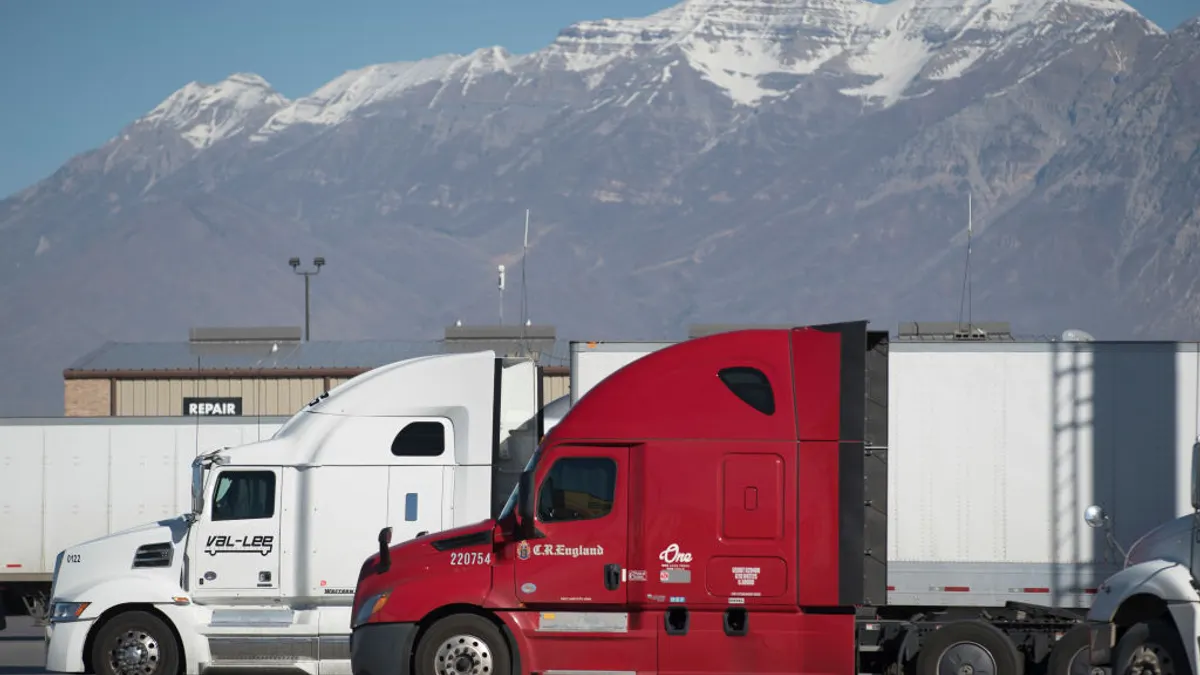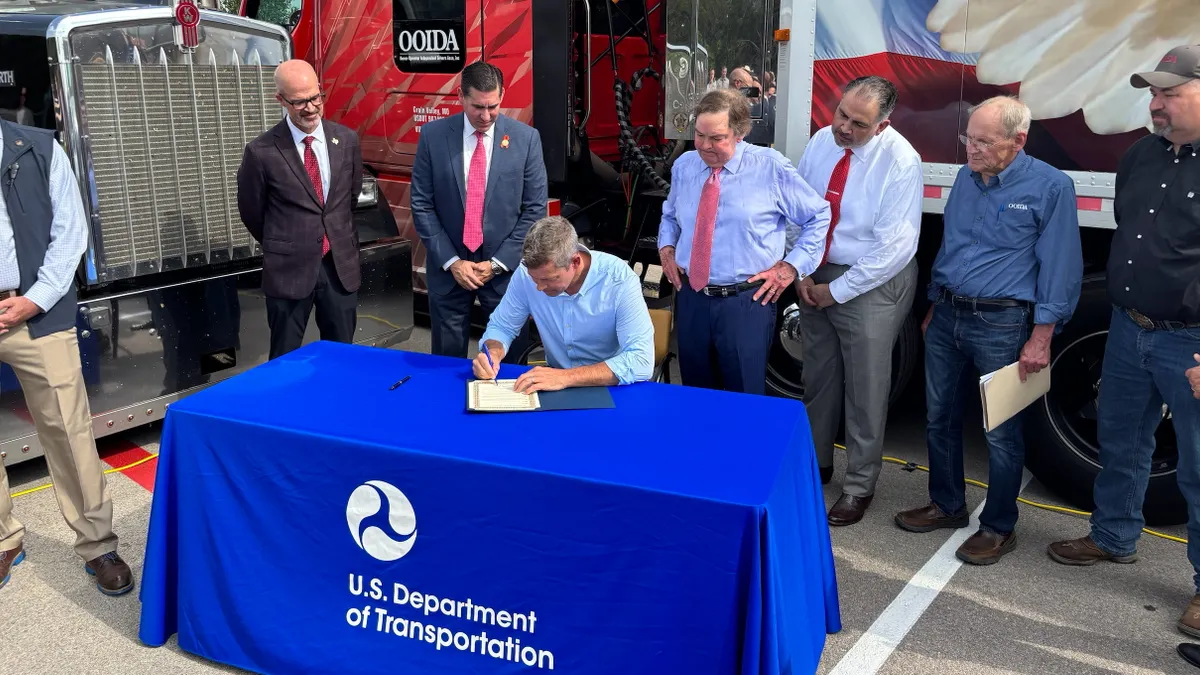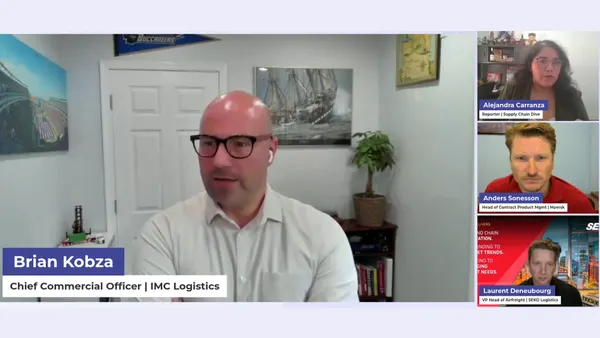Dive Brief:
- The U.S. State Department is pausing the processing of work visas for applicants seeking to operate commercial trucks in the United States, a State Department spokesperson told Trucking Dive.
- The pause specifically affects workers of all nationalities applying to operate trucks under the H-2B, E-2 and EB-3 visa classifications. Workers with currently valid visas are not affected. The pause is not directed at any specific country, per the spokesperson.
- The pause is being done “to conduct a comprehensive and thorough review of screening and vetting protocols used to determine their qualifications for a U.S. visa,” the spokesperson added. It will remain in place until the protocols are updated.
Dive Insight:
The Trump administration has taken a series of actions to increase enforcement of commercial driving standards this year, with a focus on clarifying English-language proficiency standards.
Enforcement ramped up this month after a fatal crash in Florida that involved a non-citizen truck driver received national attention. Earlier this week, the Department of Transportation launched an official investigation into the issue, alleging the driver did not speak English and that several states violated federal rules while issuing a CDL. The work visa pause was announced shortly thereafter, on Thursday.
"Effective immediately we are pausing all issuance of worker visas for commercial truck drivers," Secretary of State Marco Rubio said in a post on X. "The increasing number of foreign drivers operating large tractor-trailer trucks on U.S. roads is endangering American lives and undercutting the livelihoods of American truckers."
The Trump administration had already taken actions earlier this year to increase enforcement of English-language proficiency standards as a requisite for maintaining a CDL. In May, the Federal Motor Carrier Safety Administration circulated new guidance on roadside inspections, requiring drivers to respond in English. The rule change came as a result of an executive order from President Donald Trump to increase enforcement of English-language proficiency in trucking.
“Ensuring that every driver on our roads meets the highest standards is important to protecting the livelihoods of American truckers and maintaining a secure, resilient supply chain,” a State Department spokesperson said.
Trucking groups such as the Owner-Operator Independent Drivers Association and the American Trucking Associations applauded the agency’s latest actions, saying it's an important step that will have limited impact on the overall industry.
OOIDA said in a statement that “there is unlikely to be any negative effect on the supply chain, as the trucking industry continues to face overcapacity.”
The ATA “believes the issuance of non-domiciled CDLs needs serious scrutiny, including the enforcement of entry-level driver training standards,” President and CEO Chris Spear said in a statement.
While the State Department’s actions have just begun, it does not impact B-1 visas for drivers from Mexico and Canada moving freight between Canada and the U.S., according to Matt Silver, co-founder and CEO of Cargado, a platform for cross-border freight.
B-1 drivers mean “these drivers aren’t on worker visas. They’re admitted under a B1 business visitor visa, which specifically allows them to haul freight across the border (Mexico → U.S.). What they cannot do is cabotage — picking up and delivering freight strictly within the U.S,” Silver wrote in a LinkedIn post on Thursday.
He also said Canadian drivers operate under a different framework that are “governed by long-standing reciprocal agreements that let freight flow between the two countries without being tied to the worker visa programs.”
Edwin Lopez contributed to this story













